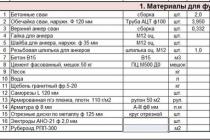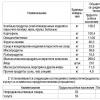The owner of private or municipal residential real estate can register any citizen legally located on the territory of the Russian Federation. It's guaranteed Art. 35 of the Constitution, where the concept of private property is revealed. However, it will not be possible to write out a tenant with the same ease, since Art. 40 of the Constitution states that no one can be arbitrarily deprived of a home.
This is the main difficulty: everything must be done so that the interests of none of the parties suffer.
Article 35. The right of private property is protected by law...
- The right of private property is protected by law.
- Everyone has the right to own property, own, use and dispose of it both individually and jointly with other persons.
- No one may be deprived of his property except by a court decision. The expropriation of property for state needs may be carried out only on the condition of prior and equivalent compensation.
- The right to inherit is guaranteed.
Article 40 Everyone has the right to housing. Nobody can be arbitrary..
- Everyone has the right to housing. No one may be arbitrarily deprived of their home.
- State authorities and local self-government bodies encourage housing construction, create conditions for the exercise of the right to housing.
- The poor, other citizens specified in the law who need housing, it is provided free of charge or for an affordable fee from state, municipal and other housing funds in accordance with the norms established by law.
move action depends on the nature of the situation as a whole., therefore, the owner of the apartment, who wants and can write out a non-resident, must take into account the following factors:
- who is to be discharged:, rowdy relative, etc.;
- voluntarily or involuntarily procedure is taking place.
- does the subscriber have other housing. The thing is, you can't force it. If the financial situation or other circumstances do not allow the defendant to acquire a new home, then the law obliges the plaintiff to postpone the eviction or, at his own expense, temporarily provide him with a place to live (Chapter 5,);
- grounds for . It depends on what certificates you have to get and, and how great are the chances of success;
- type of property The in which the property is located ( or ).
Reference! Only the owner or tenant can go to court when it comes to municipal property. The law does not prohibit other interested citizens from doing this, but they will have to confirm their right to file a claim.
More nuances about whether it is possible to extract a person from an apartment without his consent if he is the owner, or if the owner wants to write him out, we provided in.
Is the personal presence of the person being discharged required?
If the tenant is discharged by force, then his presence is not required. In fact, the court recognized the illegality of property claims, so the court ruling will become the basis for deregistration of this person with the FMS.
Important! Directly Judges do not issue. Their task is to establish that the defendant should no longer use someone else's property. Having received such a decision, the plaintiff may himself write out the defendant without the consent and presence of the latter.
Special categories of citizens
For certain groups of people, the law provides for special rules, in connection with which the task facing the homeowner is simplified, complicated or becomes impossible.
Minors
If the child is not the owner of the property, then you will not have to obtain the consent of the guardianship authorities. However, by law, children must live with their parents or guardians, so discharge is only allowed if at least one of them is registered.
So, according to Art. 31 of the Housing Code of the Russian Federation, the plaintiff may have to provide his ex-wife and children with another place to live as part of the fulfillment of alimony obligations. If the plaintiff is not a parent, then the former family members may retain the right to use the living space for the period specified in the court decision.
You will find more information on how and under what conditions it is possible to extract minors, and in we talked about how such an extract can legally be carried out by the owner of the apartment.
Persons deprived of parental rights
Such citizens should be discharged if the court found it impossible to continue living with their children. The consent of the former parents in this situation is not required, as well as the provision of alternative temporary housing (Article 91 of the LC).
Article 91
- If the tenant and (or) members of his family living together with him use the dwelling for other purposes, systematically violate the rights and legitimate interests of neighbors or mismanage the dwelling, allowing it to be destroyed, the landlord is obliged to warn the tenant and members of his family about the need to eliminate violations . If these violations entail the destruction of the dwelling, the landlord also has the right to appoint a reasonable period for the tenant and his family members to eliminate these violations. If the tenant of the dwelling and (or) members of his family living together with him, after warning the landlord, do not eliminate these violations, the guilty citizens, at the request of the landlord or other interested persons, are evicted in court without providing another dwelling.
- Citizens who have been deprived of parental rights may be evicted from the residential premises without provision of another dwelling, if the joint residence of these citizens with children in respect of whom they are deprived of parental rights is recognized by the court as impossible.
Convicts and conscripts
Serving a sentence or conscription was previously considered the basis for deregistration. However, on December 31, 2014, law 525-FZ was issued, abolishing this procedure, and now no one can evict conscripts without their voluntary consent. The only thing the owner can do is to temporarily write out those who are absent in order to reduce the amount of utility bills.
When the term of service or imprisonment comes to an end, a citizen can appear where he is registered, even if the property has been sold, exchanged or privatized.
Persons presumed dead or missing
Such citizens are allowed to be discharged, but first the owner will have to obtain a court decision declaring them dead or missing (Article 31, Chapter V of the Decree of the Government of the Russian Federation of 07/17/95). Having issued this document, you can do whatever you like with real estate: sell, donate, privatize, if it was municipal. Even if the person suddenly returns, there will be no legal grounds for canceling the transaction.
We talk in more detail about how to properly issue an extract from the deceased.
Those who refused to privatize
 A citizen who voluntarily refuses to participate in privatization receives in return a lifelong right to use property, and it cannot be forced to issue it even if the owner changes(Article 19 of the Federal Law No. 189 of December 29, 2004 “On the Entry into Force of the New LCD”).
A citizen who voluntarily refuses to participate in privatization receives in return a lifelong right to use property, and it cannot be forced to issue it even if the owner changes(Article 19 of the Federal Law No. 189 of December 29, 2004 “On the Entry into Force of the New LCD”).
There were no exceptions to the rule for a long time, however, on September 1, 2014, an Overview of the Supreme Court's judicial practice appeared, and in there - the Determination of the Judicial Collegium for Civil Cases of the Armed Forces of the Russian Federation in case No. 46-KG13-6, considered on February 4, 2014. The essence of the Definition is that the privileges of “refuseniks” may terminate if they voluntarily change their place of residence and have not lived at the place of registration for a long time.
Reference! Those who are faced with the need to discharge a disabled person should know that in itself disability does not give any benefits and the procedure is carried out on a general basis. If a sick person is not a relative of the owner of the home, then the latter is not obliged to support and care for him.
How to discharge a non-owner from an apartment?
A peaceful path is the best option, because with mutual agreement you do not need to waste time, money and nerves. Housing issues are sometimes resolved for years, and all this time conflicting relatives will have to live under the same roof (in more detail, we consider the question of whether the owner of the apartment has the right to write out relatives without their consent).
For voluntary discharge, you just need to come to the FMS office with a passport (men will additionally require a military ID), and then receive and fill out an application form. By the way, this can also be done on the State Services portal - a notification will come within three days, and the citizen will only have to go to the selected branch of the passport office with the originals to put a stamp in the passport.
We tell you about which authorities you can contact to make an extract, and in what cases and how to facilitate the process, you can find out using the State Services portal.
As an attachment, the claim is accompanied by copies of the following certificates and documents:
- a copy of the applicant's passport;
- paperwork for an apartment (certificate of ownership, sale and purchase agreement, social lease agreement for municipal real estate);
- receipt of payment of state duty (the amount will be 200 rubles);
- the evidence base collected before the filing of the claim.
The claim and all attached certificates must be prepared in several copies: one for the court, the plaintiff and each of the defendants, if several people are to be discharged.
Watch a video that tells you how to properly file a claim.
Where to go
 Consideration of such cases is carried out by city or district courts at the address of the real estate. However, then the tenant will first have to contact the owner with a complaint about the household. Municipality in response should send him a warning, and if the situation does not change, the employer may file a claim.
Consideration of such cases is carried out by city or district courts at the address of the real estate. However, then the tenant will first have to contact the owner with a complaint about the household. Municipality in response should send him a warning, and if the situation does not change, the employer may file a claim.
- the court left the tenant the right to use the property;
- recognized the termination of this right, however, given the financial capabilities of the former relative, gave a delay;
- recognized the termination of the right to use the apartment without delay.
Important! Dissenters may appeal. The decision of district and city courts is appealed to the regional court within a month from the date of its issuance.
Having received a decision on his case, the plaintiff can appear at the passport office and complete the discharge procedure. If the tenant still refuses to obey the law and voluntarily leave the apartment, you will have to contact the FSSP.
What papers to prepare?
Once the judgment is received, the owner will be able to proceed directly with the eviction. To do this, you should contact the passport office, providing the following papers:
- personal passport of the property owner;
- certificate of registered residents;
- title documents;
- a form of a court decision with a mark of entry into force;
- application for deregistration;
- departure address sheet.
The procedure will be completed within three days. Now you know how to write out a non-owner of an apartment from an apartment. We wish you success in this difficult task!
A number of situations when a tenant has to be discharged from an apartment is very extensive. Well, if you can convince him to do it voluntarily, as otherwise the extract is possible only. This is not the easiest way, but with a competent approach to business, you can get rid of the unwanted neighborhood both in the municipal and in.
The question of whether the owner can remain relevant for many families: if a citizen is registered in this living space, but does not live on it, you will have to pay more for the apartment on utility bills. In addition, in the future it will be much more difficult to sell, exchange, donate, etc., the presence of a registered tenant is an additional burden. The housing issue remains one of the most complex and confusing, so you need to figure out what the registered tenant and homeowner have the right to, and how relations between subjects of law are provided by law.
You can write a person out of an apartment only after a court decision!
From the living space it is possible without his consent, but such an operation is carried out only by a court decision, which must take into account all the circumstances. This applies to the relationship between persons living in the apartment: marital status, age of registered residents and some other data are taken into account. In all cases, it will be necessary to document that a person does not live in this living space or does not have the right to live, so he must be evicted or discharged. There are several most common cases in which the owner acquires the right to discharge tenants from the apartment without asking their consent:
- Absence at this location. If the tenant has not lived in this territory for a long time, and at the same time he has another in which he can register. You will have to prove your case, the testimony of neighbors and any evidence that the person has long left will help.
- Family law has its own subtleties, however, after a divorce, if the apartment was acquired by one of the spouses before marriage, after the dissolution of the union, he may demand that the ex-husband or ex-wife be discharged through the court.
- the former spouse loses all rights to real estate, like his relatives.
- If a person was registered after privatization, the owner has the right to write him out at any time. The only difficulty is that minors cannot be discharged without proving that the child has other housing of an equivalent or larger area.
- It is possible to discharge a parent if he was deprived of parental rights, and the court ruled to prohibit his cohabitation with children.
- If the housing has not been privatized, it becomes even easier to write out a tenant from it. It is necessary to provide documents confirming the fact of misuse or damage, and the rights of neighbors, etc. The court will consider the case and decide on the eviction of the tenant.
Difficulties in family relationships: how to discharge an ex-husband?

When resolving issues after a divorce, first of all, it turns out whether the apartment was privatized, and who is the owner. If the living space is framed in shared ownership, and both spouses own shares, it is impossible to write out any of them without their consent. The owner receives the right to reside and register, so you will first have to buy out a share, and then apply to the passport office.
A similar rule applies if the apartment was purchased after the marriage, but one of the spouses then refused the share in favor of the other. Housing in this case is recognized as jointly acquired property, and it must either be divided equally, or someone will have to pay the cost of the share. The court will also take into account the interests of children when delimiting disputed shared property. If the second spouse is not considered the owner, and the property was acquired by one of the spouses before marriage, after receiving a divorce certificate, it again becomes the full property of the owner. All registered persons can be written out of it, after which the housing will be ready for sale. If a minor relative is registered in the apartment, the issue should be resolved through the guardianship and guardianship authorities.
The basis for this will be a certificate of divorce, in court you need to confirm that the apartment is your property, and the ex-spouse has no rights to it. The case can be considered for quite a long time, especially if the other side ignores the invitations to meetings, but in the end you will be able to get the opportunity to discharge your spouse and use the property at your discretion.
The buyer finds himself in a difficult situation if, bypassing the established norms, he is sold housing in which someone is already registered.
For example, a registered relative left for another region or ended up in places of deprivation of liberty, and returned a few years later and found that the house had been sold. In this case, the case will be considered in court: it will be necessary to prove that the person did not live in this territory for no good reason, and he has other housing. If the court does not take your side, the transaction will be declared illegal: you will have to look for the seller and demand a refund from him.
How to protect your rights in court?

If it becomes necessary to discharge a former relative or a long-term absent family member, this can be done as follows:
- This document is submitted to the district court, in which you need to declare the eviction from the apartment and deregistration of the former relative, indicating the reasons for this. Compiling a competent application is not easy if you have not encountered similar issues before. It is better to use the help of a professional lawyer who can pick up all the necessary wording. The lawyer must first analyze the situation in order to outline a basic strategy.
- A set of documents is submitted to the court: a certificate of ownership of real estate, a divorce document, unpaid utility bills, etc. has ownership rights to it.
- If both the owner and the tenant came to the meeting, the judge, after studying all the issues, will make a decision. Either the objectionable tenant will be discharged, or the court will retain his right to reside in this territory. If he does not come to court at all, the case will be adjourned several times. The process may be delayed, and all this time the tenant will be in your territory. There are situations in which even a positive court decision will not bring the desired result.
- If a person you don’t like has no other housing, and there is no way to purchase it, it will not be possible to write him out “to nowhere”. The court may order the owner to provide the defendant with temporary use of other housing, and he must agree to new conditions. Naturally, this is far from always possible, and often you have to live together for years in a disputed territory. A tragicomic situation can lead to a real "war" between once close people.
- If a person has no other accommodation, the court may offer to grant him a respite for a certain time. During this time, the defendant must find a new place of residence. This also does not always allow to resolve the issue, and the apartment may remain controversial for a long time.
Extract of a citizen from municipal housing

If the apartment has not been privatized, it will be much easier to resolve the issue. There are several reasons why the court may recognize the further residence of a person in an apartment as impossible:
- Misuse of public property. If the tenant decides to use the store or use it as a warehouse, the neighbors can sue him and demand to vacate the premises. Since the citizen is not the owner, but only the tenant, a decision will be made to vacate the living space.
- Public order disturbance. If the tenant drinks, rowdy, systematically breaks the silence at night, the court will decide to evict the defendant with the whole family. True, in this case there are reservations. A person cannot be discharged to the street, especially if there are minor children in the family. He should be provided with temporary housing from the reserve fund, and in most Russian cities it simply does not exist. As a result, the neighbors have to endure the violent tenant for years, despite all the police protocols.
- If the tenant does not pay for more than six months, the court will decide on eviction. At the same time, other persons residing in the same territory are not required to pay other people's debts.
In order to discharge an unscrupulous tenant from an apartment, a notice is first written to the municipal authority, which must send a written warning to the tenant. After that, the neighbors draw up a statement of claim in the district court. The judicial authorities will check all complaints and after that a decision will be made on eviction and deregistration. In any difficult cases, it is better to first contact a lawyer: he will tell you what documents to collect in order to quickly prove your case.
It is much more difficult to discharge a person who does not have a permanent income for health reasons or who cares for sick children and the elderly from an apartment.
The court considers each case individually, and the decision is not always made in favor of the applicant. have always been very complex and the court must first examine the case comprehensively before making a decision. This takes into account not only the articles of the codes, but also the principles of humanity. Thus, the owner can write out an objectionable tenant from his territory if he can prove that he does not have rights to the living space he occupies, and also confirm that he has other housing. Such cases are usually considered for a long time and are associated with significant difficulties, so it is better to start collecting documents in advance and try to amicably resolve the issue without going to the courts.
You can learn from the video how to extract from the apartment by court decision:
5/5 (29)
In what cases does the right of ownership arise under the law
According to the norms of the current migration legislation, every citizen staying on the territory of the Russian Federation is obliged to temporarily or permanently register at the address where he lives.
If everything is very clear with the owners of real estate - they register in their own housing, then with persons who do not own a house or apartment, there are always difficulties.
Attention! Difficulties with registration are explained by the fact that homeowners are cautiously considering proposals for temporary or permanent registration of other persons in their houses and apartments. After all, it is not clear what rights such tenants can eventually claim for their housing.
At the same time, the current legislation restricts the rights of the tenant or tenant to someone else's property. Thus, such persons have the right only to live in the living space provided to them by the owner of the apartment or house.
They do not have the right to make any transactions in relation to housing. Also, they are not allowed to register their relatives or other persons on the living space they occupy.
The only exceptions are minors. By law, they are registered at the place of temporary or permanent residence of their parents. In this case, the consent of the owner of the residential premises for this procedure is not required.
Under no circumstances will temporary or permanent registration entail the acquisition of ownership of the dwelling.
Attention! Our qualified lawyers will assist you free of charge and around the clock on any issues.
According to the current civil legislation, a citizen can obtain the right to own housing in the following cases:
- when concluding a contract for the sale of real estate. For example, a homeowner may sell part of his property to a person who uses it with the permission of the owner;
- when concluding a donation agreement for real estate;
- according to a life annuity agreement;
- in the order of inheritance after the death of the owner of the housing;
- by a valid court decision.
The rights of a person registered in the apartment
The Housing Code of the Russian Federation refers to such persons:
- spouse;
- native and adopted children;
- parents through husband and wife.
The owner of housing can also include other relatives, dependents, persons who are not related to him as members of his family. Such a decision must be documented, for example, in a temporary or permanent residence permit.
As a general rule, all persons who are registered at the place of residence have the same rights to use housing as the owner. However, a separate document concluded between these persons and the owner of the housing, their rights can be detailed.
Remember! Regardless of the scope of rights that are vested in the persons living in the owner's housing, they are obliged to take care of the property, comply with the rules of cohabitation, and keep the housing intact and safe.
If family relations are terminated, for example, a marriage between spouses is dissolved, then a former family member registered in an apartment or house loses the right to use housing. Therefore, the owner can independently write out such a person from his living space.
However, an agreement or other document may provide otherwise. In addition, when these issues are considered in court, former family members are often granted a temporary right to use housing.
If a person who is temporarily or permanently registered in the owner's real estate is not related to him, then he can use housing only on the conditions established by the owner of the apartment or house.
What rights does a registered non-owner have?
As practice shows, in most cases, family members, as well as close relatives, are registered on the owner's living space on a permanent or temporary basis.
In addition, persons registered in housing cannot:
- independently register in the apartment or house of the owner of their relatives;
- enter into purchase and sale transactions in relation to such housing;
- to exchange housing for another;
- accept it as an inheritance according to the law;
- transfer an apartment or house as collateral when applying for a loan;
- to re-equip housing at its discretion;
- carry out capital repairs;
- provide a house or apartment for living to other persons. This is the exclusive right of the property owner.
Thus, a person who is registered in housing owned by another individual on the right of ownership has the right to live and use it. He cannot claim more.
In case of violation by the tenant or tenant of the obligations assumed, the owner of the housing has the right to terminate the contract for accommodation, if it was concluded, and demand the discharge of these persons from their living space. In the event of a dispute, the last word belongs to the court.
Judicial practice shows that the claims of property owners are satisfied in full.
Please note! In some cases, the court allows the tenant to live in the owner's house or apartment for several months, after which he is obliged to vacate the housing. Otherwise, he is subject to eviction.
The nuances of registration in an apartment that was privatized
As a result of the privatization of an apartment, the person to whom the privatization documents were issued becomes its owner. Thus, the full owner can be one person or several. If one person privatized, since no one else lived in the apartment, then such a person will manage the property independently.
Being the owner of housing, an individual decides who to register and who to refuse registration. At the same time, applicants for registration can be both relatives and complete strangers.
The registration procedure is as follows: the owner of the apartment and the tenant of the housing jointly apply to the division of the migration service, where they fill out applications.
The owner declares that he gives his consent to the registration of a specific person in his housing, and the tenant indicates his desire to register in the owner's property.
After the end of the temporary or permanent registration procedure, the tenant acquires the following rights:
- enjoy the housing on an equal footing with its owner. However, a written agreement may be concluded between the tenant and the owner, which will list the specific rights and obligations of the new tenant. If we talk about responsibilities, then they consist in using housing for its intended purpose and ensuring measures for its safety;
- if the tenant is a relative or family member, then upon termination of family relations, such a person loses the right to use the occupied housing. However, the marriage contract or other agreements may provide for other rights and obligations of such persons. In this case, the contract takes precedence.
If the dispute between the homeowner and the tenant goes into the judicial sphere, then the court verdict is final.
Judicial practice shows that the courts practice granting a certain period of residence to former family members, which is sufficient to search for another dwelling.
Important! If, when registering the rental of residential premises, a specific period was agreed upon, until which housing is provided for use by the tenant, then with the expiration of such a period of time, the apartment must be vacated.
Early release of rented housing is possible only at the initiative of the tenant himself or with his consent, if the initiative comes from the owner. If no agreement is reached, the dispute proceeds to resolution in court.
However, if the owner decides to terminate the lease agreement ahead of schedule, he is obliged to notify the tenant in writing in advance of his decision.
He can agree with the proposal of the owner and voluntarily vacate the housing or refuse - in this case, only the court will be able to make a final decision.
Watch the video. Registration and extract for housing transactions:
Rights registered in a municipal apartment

Individuals registered in such real estate do not have the right to own housing. However, they are granted a number of rights.
In particular, they have the right to:
- live in such residential premises and use the set of utilities that are provided;
- rent housing. However, only the responsible tenant has this right.
Family members of the employer and his close relatives living together have the same rights and obligations as him.
In this case, family members include persons who are registered in the same living space with him under a social tenancy agreement.
These include:
- spouse;
- children, relatives and adopted;
- parents of the employer and his spouse;
- other relatives.
Attention! These persons are subject to registration on the basis of a social contract of employment. That is, they must be specified in the contract. If there is no information about such persons in the social contract of employment, then registration is not possible.
In case of divorce or termination of family ties for other reasons, all persons specified in the social contract of employment retain the right to reside in the specified municipal housing.
Registration in non-privatized housing
After citizens receive municipal housing, they have the opportunity to privatize it in the future. At the same time, all persons specified in the social contract of employment have such a right.
After the completion of the privatization procedure, all persons become co-owners of housing. However, since privatization is voluntary, you can exercise your right only if you wish.
Anyone who does not want to participate in privatization does not receive a share in the property, but has the right to permanent residence in such housing.
That is, by refusing to participate in privatization in favor of one or all of the other tenants, such a tenant receives the right to an indefinite residence permit. At the same time, he is not released from the obligation to maintain housing in proper sanitary condition.
The tenant, if the size of the living space allows, and there is the consent of all homeowners, can register members of his family and other persons. The main requirement is that the norm of living space per person must be observed.
Family members of the employer, like himself, have the same rights and obligations. As for minor children, they are subject to registration at the place of residence of their parents.
If the parents live separately, the child is registered at the place of residence of the parent with whom he spends more time. However, parents among themselves can establish other rules for the registration of their children.
Remember! Obtaining consent to register children with a parent who is an employer is not required from homeowners.
Wife's right to an apartment if the owner is a husband
What rights does one of the spouses have to an apartment in the event of a divorce? To answer this question, one should proceed from when the apartment was purchased.
That's why:
- if the housing was acquired by the spouses during an official marriage, then the spouses are full owners, even if the housing is registered to one of them;
- if the apartment was purchased by one of the spouses before the official conclusion of the marriage, then the housing belongs to the spouse who purchased it by right of ownership. The second spouse has no right to housing and after the dissolution of the marriage is obliged to vacate the apartment, since it can be alienated at any time by the former spouse in favor of other persons.
Why do you need a registration
According to the current legislation, all citizens staying temporarily or permanently on the territory of the Russian Federation are required to register at their place of residence.
Under the Soviet Union, this was called propiska. Now it's registration.
At the same time, citizens do not have the right to be registered at one address, but to live at another, especially in another locality or region of the country.
Among the population of the country and legal scholars there is no consensus on the institution of propiska. Some consider this a restriction on the right to free movement around the country. Others, on the contrary, protect property rights from illegal encroachment.
At the same time, the legislator is of the opinion that registration should be carried out at the place of permanent or temporary residence of citizens.
By registering in a dwelling, citizens are endowed with certain rights and freedoms in relation to the rented dwelling. All of them are quite clearly spelled out in housing and other legislation.
Note! Due to their legal illiteracy, many homeowners fear that after registering an outsider in their apartment or house, they will be able to claim housing. However, such fears are groundless and are refuted by certain provisions of the current legislation of the Russian Federation.
Registration procedure
Registration permanently or temporarily at the place of residence for a citizen who is not the owner of housing is quite problematic. This is due to the fear of the owner of the premises to lose their rights.
However, fairly competent owners not only give their consent to such a procedure, but also try to formalize such relations in a written contract.
You should be aware that registration does not require the conclusion of a tenancy agreement in writing. A verbal agreement is sufficient.
However, if a written contract is drawn up for a person to live in an apartment or house of the owner, this automatically means obtaining consent to registration. Even if the contract doesn't say anything about it.
In the usual manner, registration of a person is carried out with the consent of the owner of the dwelling. However, first of all, you should prepare the necessary package of documents.
His list should be clarified at the migration service department or the passport officer of the Housing Office. After all, each region of the country can establish its own list of documents.
Remember! Regardless of this, the overall package of papers should include:
- an application for registration from a person who wishes to register;
- a statement from the owner of the housing with consent to the registration of such a person in his apartment;
- passports of the registrant and the owner of the housing;
- title documents for housing. Since 2017, the only document that confirms the ownership of real estate is an extract from the Unified State Register of Real Estate;
- marriage registration certificate, if the applicant has a spouse;
- written consent from the municipality, if registration is carried out in an apartment provided to a responsible tenant under a social tenancy agreement.
In each specific case, the list of documents can be expanded.
What actions to take and where to go? How to do it? These questions are very difficult for those who are faced with the issue of eviction for the first time. Our task is to tell about how the discharge procedure takes place, and most importantly, what are the grounds for doing so.
How to deregister the former owner without consent? Can the new owner do it? You can find out about the time frame in our article.
general information
Does a landlord have the right to check someone out without consent?
Without the presence of the owner
In jurisprudence, it is often the case that the extract takes place without the presence of the owner. This happens for various reasons.
- The registered person decided to issue an extract independently and of his own free will, and to carry out this procedure through the passport office, the presence of the owner is not necessary.
- Is it possible to issue an extract of a person from an apartment through a third party? The owner, due to circumstances, cannot carry out the procedure for discharge or going to court, therefore, this is done for him by a legal representative.
- The extract of the tenant is carried out by other co-owners without one of the owners of the apartment in the common interest.
But each of these reasons must have legal grounds, which are directly or indirectly mentioned in the regulations. Let's take a look at them in the paragraph below.
Legislative regulation
Can the owner of the apartment write out the prescription without his consent? Federal Law No. 5242-1 of July 25, 1993, in Article 7, fixes the main reasons for deregistration of citizens.
By the way, the concept of "extract" has long lost its power and has given way to the phrase "Deregistration".
What documents are required?
How to check out of the apartment if you are not the owner? To be discharged with your consent, you must provide:
- passport and its copy;
- departure address sheet;
- a document certifying temporary registration;
- application for deregistration of a person at the place of residence.
 If It's about filing documents with the court., then the package is formed not by the registered one, but by the owner of the housing.
If It's about filing documents with the court., then the package is formed not by the registered one, but by the owner of the housing.
It contains the following documents:
- owner's passport;
- copy;
- certificate of ownership;
- state duty in the amount of 300 rubles, payment receipt;
In addition to the initials of the person - the owner, as well as the name of the court, the statement, written by hand or typed on a computer, must disclose the meaning of your claim. You must clarify in connection with what you want to discharge the tenant, and most importantly, on what basis do you rely.
After that, the date of writing and your signature are put at the end of the application, as well as the attached documents are listed.
If it turns out that the tenant has not lived at home for a long time - provide evidence, if the tenant - provide receipts.
Documents are submitted either to the passport office closest to your place of residence, or to the Magistrate's Court also located at the place of residence.
You must apply to the court through the office, where the secretaries will initially accept the package from you and, if necessary, point out the shortcomings.
Terms and cost of registration
In the passport office, deregistration is processed within three days. If we are talking about the judicial instance, then the consideration of the case can last from one to several months. In the end, withdrawal occurs automatically, by court order.
Procedure free and is not subject to additional tax. If you do not have time to deal with paperwork, and you turn to special law firms that provide certain services, then it is likely that you will have to pay for their efforts.
 Value state duty when filing a claim is 300 rubles.
Value state duty when filing a claim is 300 rubles.
Present the receipt of payment at the time of submission; in its absence, the package of documents will not be accepted.
After discharge, a citizen deregistered is issued a certificate indicating that he was discharged from his place of residence, indicating a specific date.
Features and nuances
Can the owner of the apartment deregister a person without his consent? If you draw up an extract from a person who does not agree to this, then you must take into account the fact that registered has nothing to do with living space.
If a person lives in real estate that is jointly acquired, but is not the owner, you cannot write it out without reason.
When making an extract, always remember that there are a lot of nuances that make up the success of your venture. Try to study your case as much as possible and only then take any action. Only then everything will be successful.
If you find an error, please highlight a piece of text and click Ctrl+Enter.














